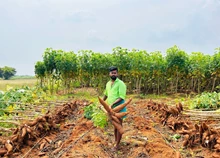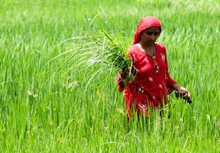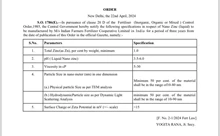
WTO MC13: The thirteenth Ministerial Conference of the World Trade Organization (WTO) commenced in Abu Dhabi on 26 February, marking a significant gathering of global trade leaders. Notably, the Indian delegation, led by Commerce Secretary Sunil Barthwal, participated actively in the conference's inaugural proceedings. During the opening day, the accession of two countries – Comoros and Timor Leste – into the WTO was celebrated. India, having extended support for these accessions, expressed its endorsement for the organization's expansion and emphasized the benefits it brings to the global trade landscape.
As the WTO approaches its 30th anniversary next year, discussions at the ministerial level delved into the organization's future trajectory. Two ministerial sessions facilitated exchanges among ministers, shedding light on the envisioned direction for the WTO.
Sustainable Development and Policy Space for Industrialization
In a session dedicated to sustainable development and policy space for industrialization, India underscored the imperative of preserving the integrity of the multilateral trading system. Emphasizing the avoidance of fragmentation, India highlighted the significance of maintaining focus and steering clear of conflating non-trade issues with the WTO agenda.
India articulated its advocacy for a sustainable lifestyle, rooted in traditional values of conservation and moderation, exemplified through initiatives like LiFE (Life Style for Environment). Furthermore, India voiced apprehensions regarding the rising trend of unilateral trade protectionist measures masquerading under environmental justifications, urging for a balanced approach.
Expressing the need for developing countries to have the requisite policy space to address longstanding concerns, India emphasized flexibility within existing WTO agreements to facilitate industrialization. Additionally, India cautioned against the amalgamation of traditional development issues with newer topics under the guise of "Trade and Industrial policy."
Trade and Inclusion: Navigating Non-Trade Topics
During the session on Trade and Inclusion, India cautioned against the integration of non-trade subjects into WTO discourse, cautioning that such inclusion could exacerbate trade fragmentation. Highlighting issues like Gender and MSMEs, India argued that these matters are better addressed through targeted national measures rather than within the ambit of international trade relations.
India reiterated its stance on the potential adverse effects of non-trade issues, citing concerns over trade-distortive subsidies and barriers that could disproportionately impact developing countries' trade interests. Illustrating its commitment to fostering inclusion, India outlined governmental measures aimed at empowering MSMEs and women, leveraging Digital Public Infrastructure for economic transformation.
Reaffirmation of Commitment to Multilateralism
Amidst discussions, India reaffirmed its steadfast commitment to multilateralism and underscored the importance of upholding a rules-based global trading system. Through active participation and advocacy, India reiterated its role as a proponent of inclusive and sustainable trade practices within the WTO framework.











